WordPress vs. Drupal vs. Joomla: The Ultimate Comparison (2024)
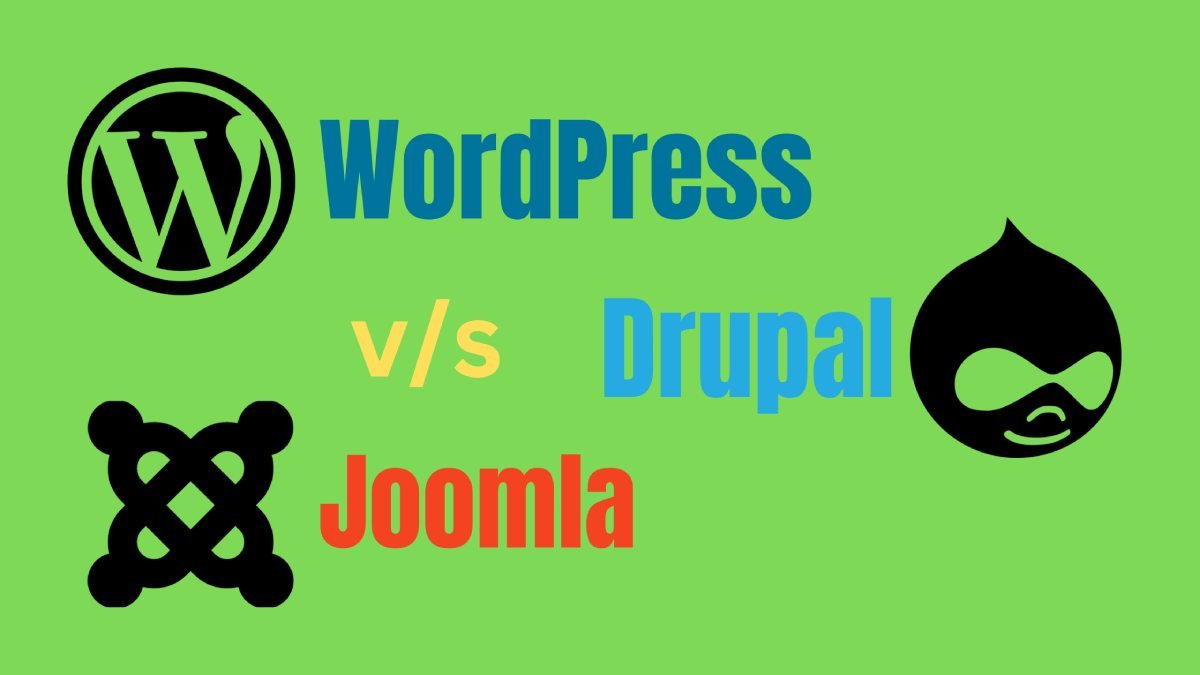
WordPress vs. Drupal vs. Joomla: let’s know which is the best overall and which one suits better for your website.
The Content Management System (CMS) is a software application that builds and manages digital content properly. Indeed, WordPress, Joomla, and Drupal have been successful CMS platforms since 2010. In this article, we are going to compare them and discuss their pros and cons.
There are various types of CMSs on the Internet, and open-source systems attract the most people. As per data researched and collected by T3Plane, almost 77% of all websites that use CMS are using open-source platforms. These numbers are surely increasing as of now because the data shows a growing rate of usage as time passes. All three—WordPress, Drupal and Joomla—fall under the open-source content management system.
Among them, WordPress tops the category because W3Tech shows that it has a monopoly with 62.8% of total CMS websites in its bag. But that doesn’t mean WordPress is the only proper CMS, because the other two have their own peculiar features that could be the right fit for your business.
If you want to learn more about CMS, then here’s everything you need to know.
First of all, let’s start with a short introduction to each of the CMS platforms, and then we’ll be on the main point.
Introductions
WordPress
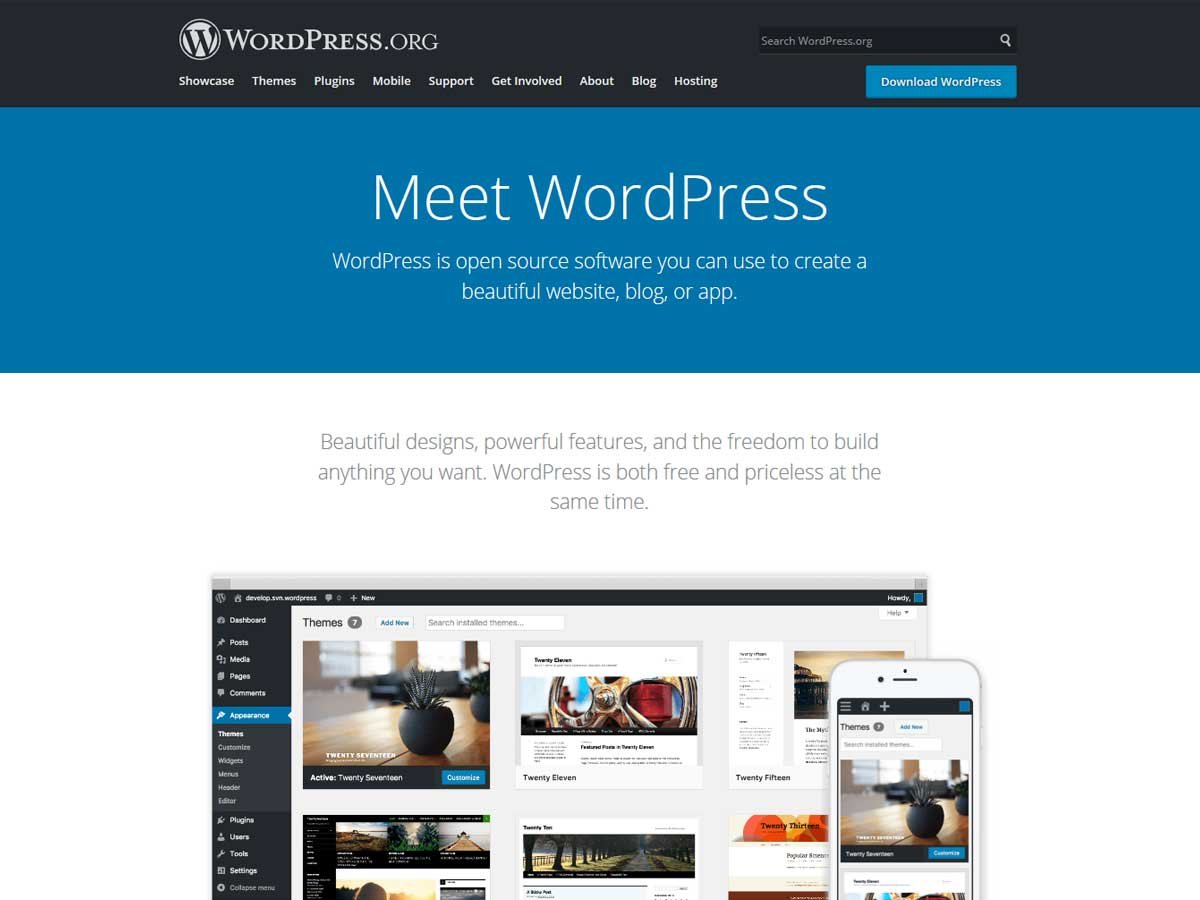
It is open-source software that you can use to create blogs, websites or more. Additionally, over 62.8% of CMS-based websites are powered by them. They provide tools to help you reach your goals successfully.
If you don’t know the difference between WordPress.org and WordPress.com then read here.
It comes with powerful features that emphasize accessibility, performance, security, and ease of use.
Drupal
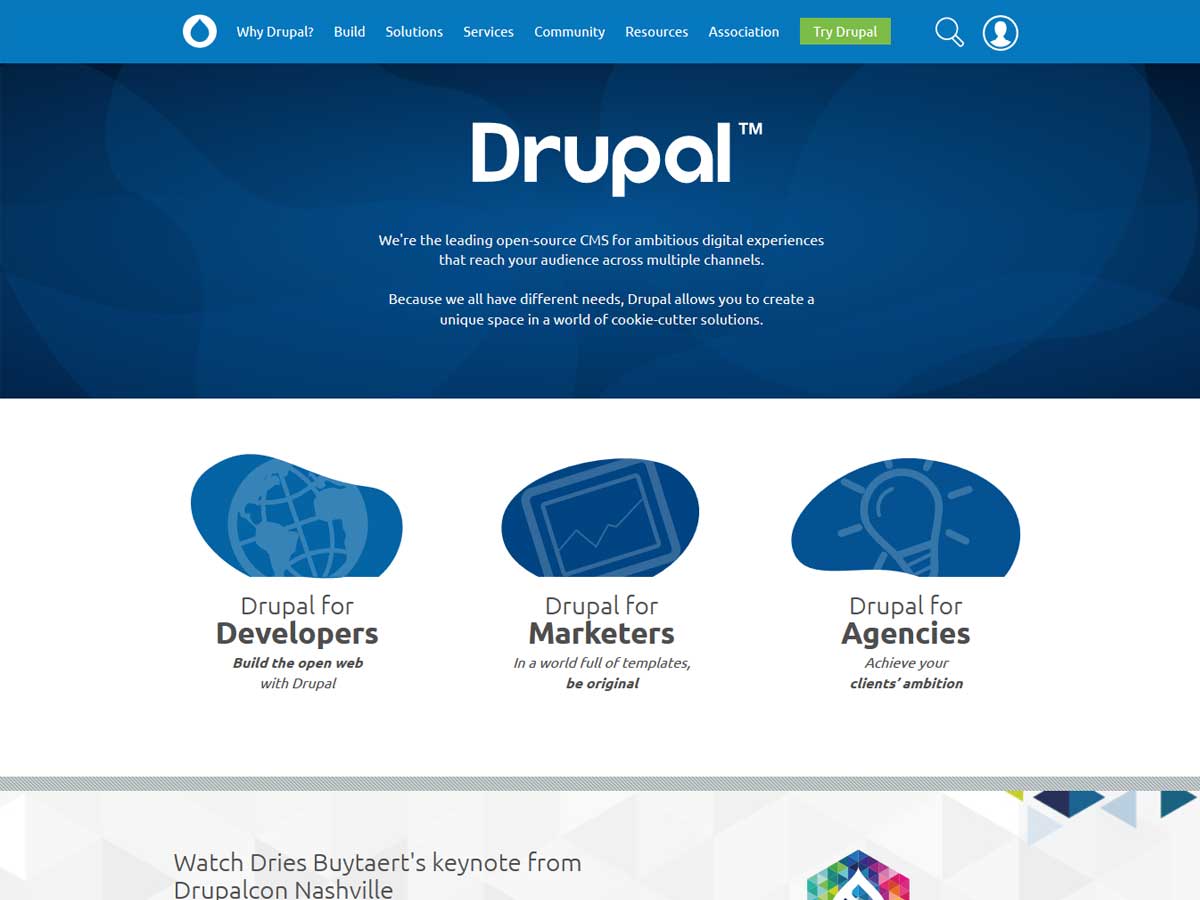
Drupal is another open-source platform that helps you make many of the websites and applications you use every day. The functionality is flexible as well as comes with standard features, such as making many of the websites and applications you use every day.
This platform also offers thousands of themes and plugins for you to choose from to create your flexible system.
Joomla

Joomla is a powerful and flexible CMS that can be used to create a variety of websites. With its advanced user management system, Joomla is considered one of the best content management systems.
One of the great features of this open-source system is that it can be used to create a variety of websites, from small business websites to corporate portals and online publication systems.
Let’s compare WordPress vs. Drupal vs. Joomla:
Ease of Use
WordPress
WordPress is well-known for its easy and quick installation method. Most WordPress hosting suppliers additionally provide a one-click install of WordPress. The entire system is easy; therefore, everything is smart.
The WordPress Dashboard is a simple user interface with menus to form posts, pages, or begin customising looks and themes. You’ll be more user-friendly with the WordPress dashboard than with Joomla and Drupal if you show interest in them.
Drupal
Drupal is widely familiar, and the dashboard is also straightforward and easy. Drupal core software system focuses on making this platform robust and secure, which is why it has restricted options.
The post-installation expertise for absolute beginners could be a bit difficult. Users can realize it tough to figure out how to modify things on their website. Drupal makes it terribly obvious how to add the content, however, the dynamic look and adding non-content parts isn’t terribly obvious.
Joomla
Joomla is kind of easy and the installation process is almost the same as with WordPress. The Joomla dashboard seems a little bit complicated for beginners. The instrument panel that allows you to manage all the modules isn’t that well-suited for beginners. You want to add the modules and additionally prepare the positions. It takes time to grasp the interface. Once you perceive its approach, it becomes straightforward.
In terms of results, WordPress wins the title of Ease of Use.
Security and Support
WordPress

WordPress is the most well-liked CMS, which implies that it is the initial target for hackers that seek out random websites. Developers have made certain that the code is as secure as possible. WordPress users will feel more secure if they extend the CMS with security plugins like Security Ninja.
WordPress contains a strong community of users. There are many ways to raise free WordPress support and acquire it.
Drupal
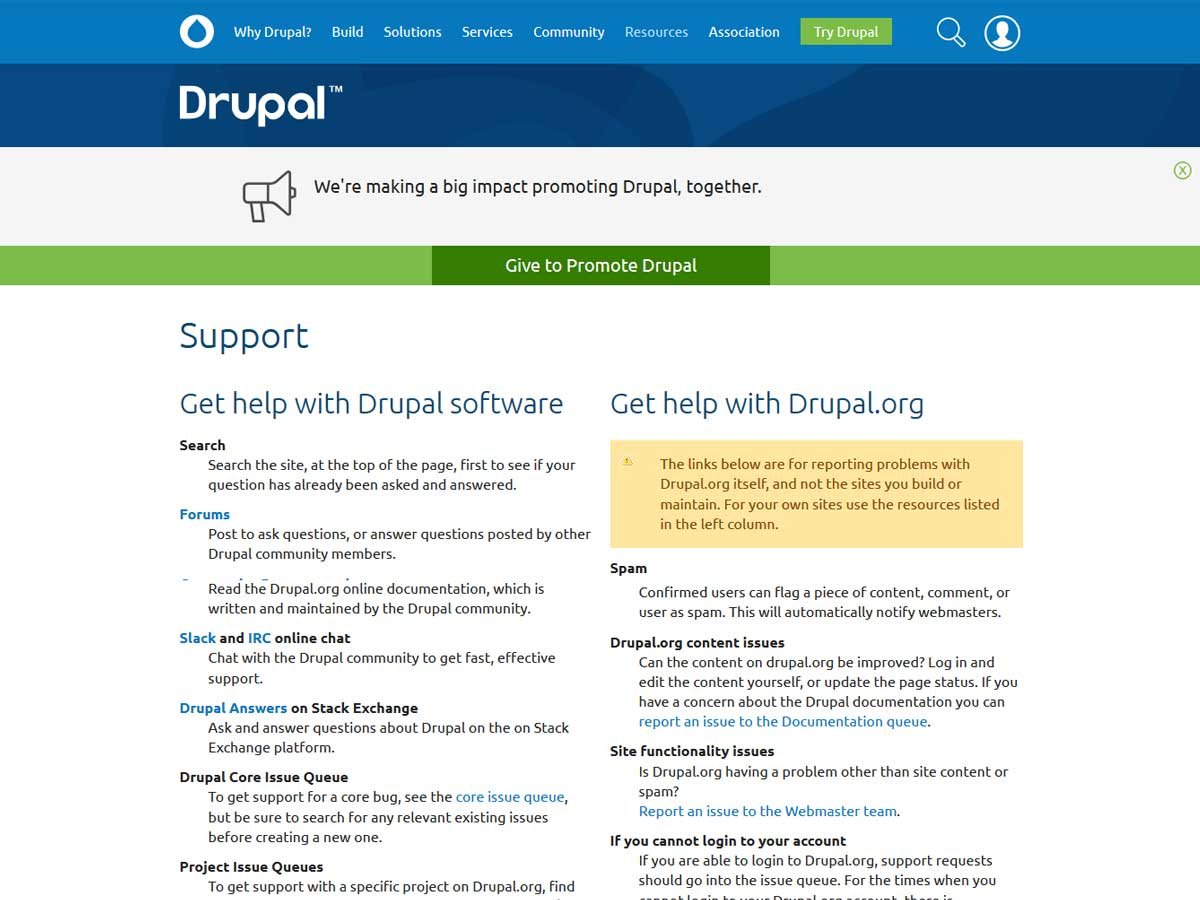
Drupal takes a really serious approach to security. It is safer as a result of you don’t hear about Drupal sites being hacked as typically.
You may find all the community support choices for Drupal. They try to attach users to developers and corporations providing skilled Drupal services.
Joomla
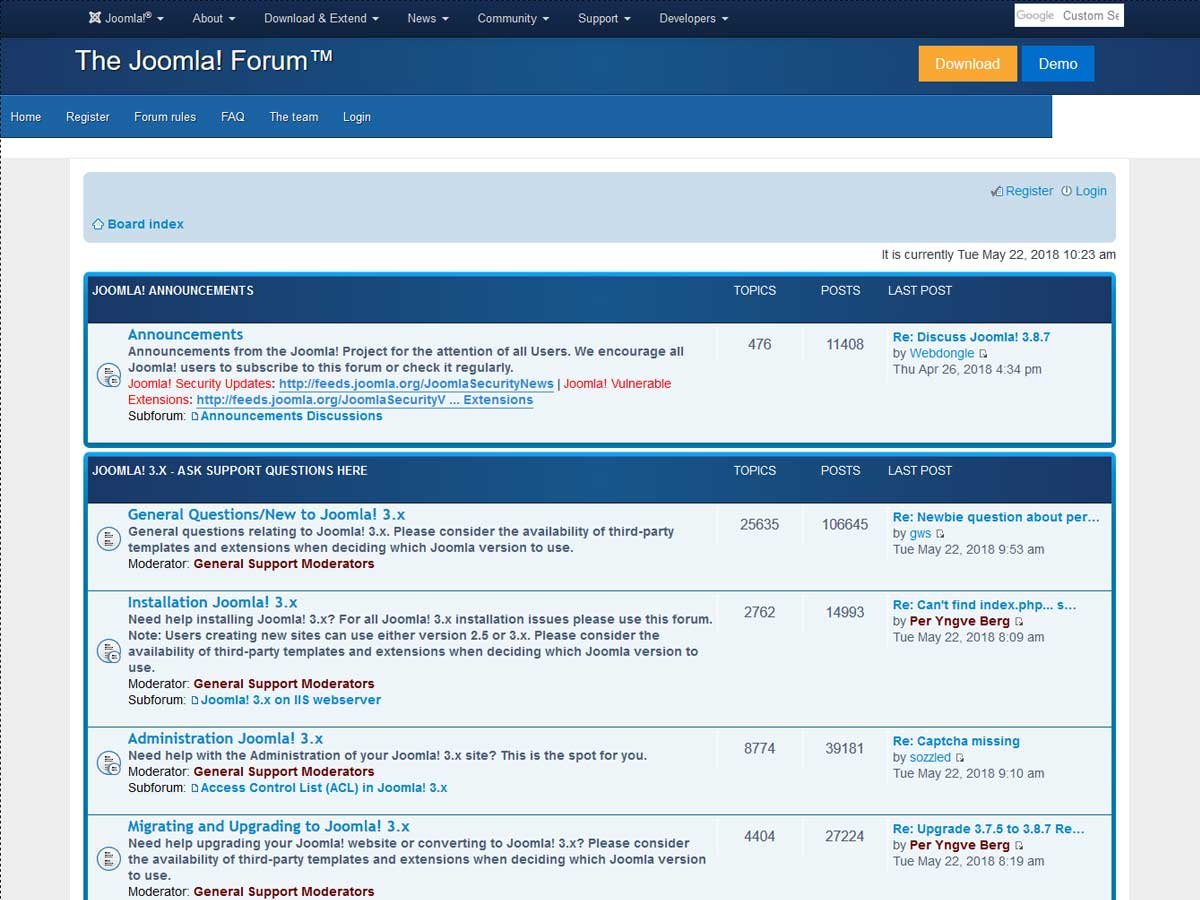
Joomla isn’t terribly different once it involves security. The developers are continuously engaged on new updates and fixing security problems on time.
They feature a massive and extremely useful community. For additional interactive support, users will be a part of forums, mailing lists, IRC chat rooms, etc. With the exception of community support, there are third-party resources, paid coaching, and development agencies that will be useful.
In terms of results, three of them equally provide full security, but in terms of support options, WordPress is the best one.
Multilingual Options and Functionality
WordPress
WordPress will go along with the choice to line a language of the positioning at any time; however, it doesn’t support making multilingual content out of the box. There are some superb plugins that may rework your plain website into a multilingual system that’s straightforward to use.
WordPress plugins are tools for adding options and functionalities to a WordPress website. You’ll add any variety of features, such as SEO, security, speed, marketing, e-commerce, etc., to your WordPress plugins.
Drupal
Drupal comes with intrinsic support to handle multilingual sites. You’ll be able to add website and admin interface languages from Drupal’s configuration section.
Drupal is an extremely versatile and extendable module, which is very important for adding functionalities and options too.
Joomla
You just have to be compelled to choose an extra language and begin translating the content. it’s additionally potential to quickly modify the admin space languages. And you won’t need to install alternative extensions or procure third-party services.
Joomla extensions are helpful for adding functionality and options. Although it’s no example directory, it’s a feature-rich extension directory.
In terms of results, three of them support multilingual options, and in terms of functionality, three of them are similarly perfect as per their features.
Which one is right for you?
In general, WordPress has an easier-to-use interface that extends to non-technical users too. But overall, all of them have required features for the majority of businesses.
If you are into blogging or content-heavy sites, then WordPress is the right choice for you. Whereas, if you want a more advanced and developer-friendly interface for continuously developing features, Joomla might be the correct option among the three options. But if you want something new to experience with a little bit of both technical advancements and content-driven sites, then you can go with Drupal.
All of them offer different peculiar features, it is up to you to choose which one. Based on your niche and business-requirements, you need to determine which one is right for you.
Personally, I would choose WordPress due to its sheer number of communities and market-share. Because of these, there are always competitions between WordPress companies. This positive competition will allow you to get in touch with the latest trends, gradually developing features and functions and cost-effective features. But that’s just my personal opinion.
In this article, WordPress vs. Joomla vs. Drupal, the ultimate winner is whichever fits for you and your business.
3 thoughts on “WordPress vs. Drupal vs. Joomla: The Ultimate Comparison (2024)”